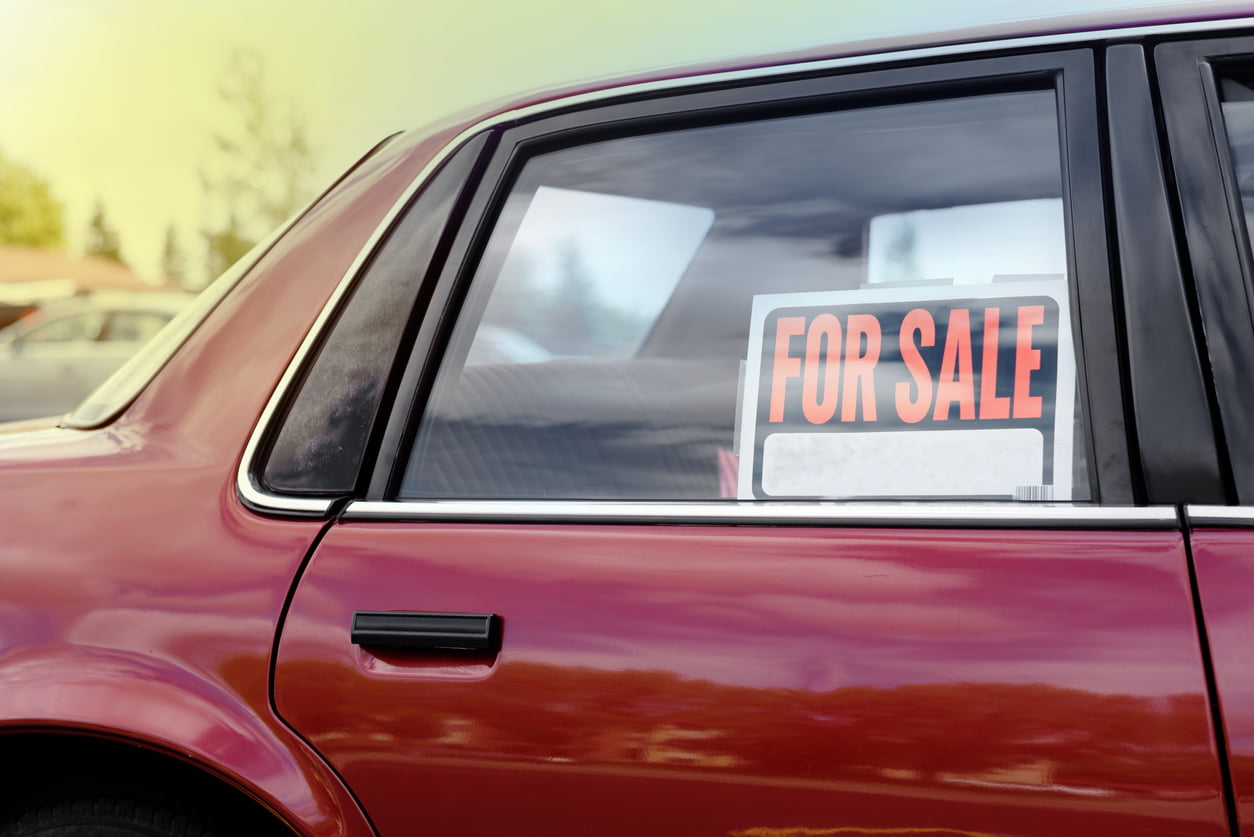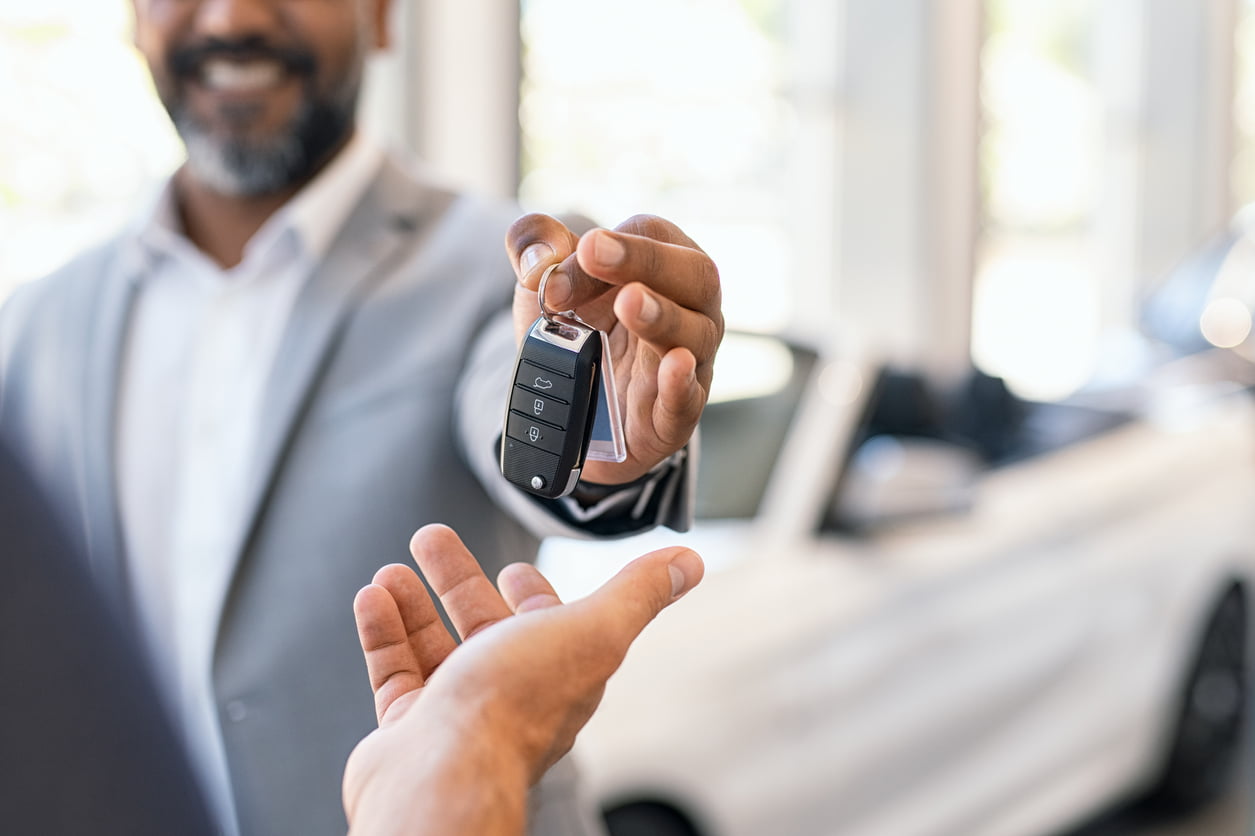Purchasing a vehicle can feel daunting, especially when considering a used vehicle. But it doesn’t have to be. If you prepare yourself for the experience, you can gather all the information you need from the seller to help ease some of the stress associated with it. We’ve compiled a list of questions that you should ask before buying a used vehicle so you can feel confident about your purchase and get a vehicle that checks the most boxes.
1. What’s the current mileage?
First, check how many kms are on it. You can figure out pretty quickly if the seller’s been running their car into the ground or only drives it on Sundays.
2. How old is the car?
Thanks to depreciation, most new cars lose 60% of their value after five years. So, if you buy a new car for $30,000, five years from now it will only be worth about $12,000. You can use the car’s age—and how that make and model loses value over time—to your advantage when you’re negotiating for a better price.
3. Has anything on the car been replaced or updated?
This question gives the seller the opportunity to inform you about any known issues with the car or flaws in the appearance. New or recent updates can increase the value of the vehicle. These details will also let you know how much money you can expect to invest in the vehicle down the line. A fender bender here or some dings there aren’t the end of the world. But if the car has been in a major wreck, it may have required a new engine or extensive bodywork. This is definitely something you need to know before buying!
4. Why are you selling the car?
It’s good to know the reasons behind the sale because you might run into the same issues down the line. The seller might simply be ready for an upgrade or perhaps the car’s size doesn’t suit their lifestyle anymore. If they break out in a sweat or quickly change the subject, alarm bells should start ringing in your head. The owner might be trying to cut their losses with a car that’s been giving them headaches.
5. Who did you buy the vehicle from and when?
By asking this question, you should be able to get more details about how the car was driven, who the previous owners were and what’s happened over the lifespan of the car. It will also tell you whether the car was purchased from a dealership or a private seller, and if it was purchased in a different province or country. If someone is trying to sell a car after owning it for less than a year, they’re probably not happy with the car for some reason. This means you’ll need to investigate to make sure the seller isn’t just trying to unload their clunker on you.
6. Are you selling the car as is, or is it under warranty?
When a dealership or private seller is selling a vehicle “as is,” that just means there’s no warranty on the car. Once you drive it off the lot (or their front lawn), dealing with any flaws or defects that need fixing are on you. However, some used cars are still under the manufacturer’s warranty. That means the manufacturer or dealer is still on the hook for at least some of the repairs and replacement parts your car might need.
7. Did the car have regular oil changes and maintenance?
All vehicles require regular servicing to ensure proper functionality and to minimize wear on the engine and its components. Manufacturers set out a service schedule, but modern vehicles will often notify the user if early servicing is required.
If a vehicle has been serviced very frequently, this can mean that the car has been driven aggressively.
- Check the service history against the manufacturers recommended schedule.
- Look for main dealer servicing stamps, as this is considered to be of a higher quality.
- Look for signs of small gaps between servicing. This can imply the vehicle has endured more wear due to aggressive driving habits, triggering frequent alerts for servicing.
8. Do you have a CARFAX Canada report?
If the seller has already purchased a CARFAX Canada Vehicle History Report, ask to see it so you can get full details on the vehicle’s history. If they don’t have one available, get the VIN so you can purchase a report yourself.
9. Can I see the VIN, the vehicle ownership and your identification?
Check this information to confirm that the seller is, in fact, the legal owner, and to verify that the registration information matches with the car’s VIN.
10. How long of a test drive can I take?
Buying a used vehicle without a test drive is unthinkable. Don’t give the option of turning down your request by simply asking if you can take the car out. If they do not want you to, that is a serious red flag. Aim to spend up to 30 minutes on a test drive. You need time to evaluate how well the car runs and whether or not the car suits your lifestyle.
11. Can I take the car for an independent inspection?
If you do one thing before buying a used vehicle, it should be this. It’s important that you take the car to a mechanic for a pre-purchase inspection to get an expert’s opinion on what’s happening with the car under the hood. They can also give you a heads up of possible future issues. If the seller is against it, question the quality of the vehicle being sold.
12. Can we fix this problem before purchase?
If you discover a flaw during a mechanic’s inspection, see if it’s possible for the seller to fix it before purchasing the vehicle. If the vehicle is listed “as is”, they may not be willing to do this.
13. Is there any damage to the exterior of the car?
It’s important to assess the exterior damages on the car, as well. Bodywork or a paint job can indicate a previous scratch from a shopping cart, but it can also be a quick patch job on existing rust that has been camouflaged. In addition, check the wheels and tires for dents, and make sure they’re not bent. Take a look at the tires, too, to ensure they don’t need a replacement before you buy the car.
14. Does the car come with winter tires?
Most Canadians need winter tires. Ask the seller if they have winter tires for the vehicle; this can be the add-on you’re looking for to sweeten the deal.
Beware of the curbsider
Curbsiders, which is the Canadian term for an unlicensed car salesman, are problematic throughout Ontario and the rest of Canada. These individuals often misrepresent themselves as private sellers, while also failing to disclose mechanical problems with the vehicle or turning back the odometer. Because curbsiders can end up costing you thousands, always shop with a used car dealer that’s licensed by the Ontario Motor Vehicle Industry Council (OMVIC). For private sellers, do your research, ask for a CarProof or Carfax report, and always be cautious and well-prepped before you talk pricing.
When buying a used vehicle in Ontario, it can be an enjoyable process if you know which steps to take. The more methodical your approach, the more successful your purchase will be. To learn the seven basic steps to buying a used vehicle, click here.




